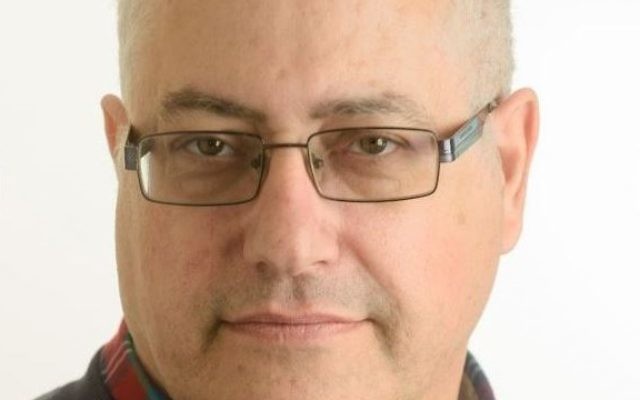Tel Aviv Victim Taught at Emory
By Ken Stein
Around 9:30 p.m. on Wednesday, June 8, at the trendy Sarona Market in central Tel Aviv, two Palestinian Arab cousins shot a dozen Israelis. Four died immediately, including Michael Feige, a professor at Ben-Gurion University.
Feige had taught at Brandeis University and at Emory University as a visiting Israeli scholar in the 2006-07 academic year.
Five months ago I had dinner at the Sarona Market, located just in the shadow of Israel’s Defense Ministry headquarters. Then, also on a weeknight, it was serene, packed with diners, shoppers and people-watchers; this could easily be described as a crowded Lenox or Perimeter Mall on a weekend, but with large outside walking spaces between boutique stores and chic restaurants.
Though Israelis had endured a spate of sporadic killings from Palestinians in different parts of the country since October, when the taxi dropped me off that night, I gave no particular thought that this lively, music-filled area would be the scene of future carnage and senseless death.
After 40 years of teaching about Israel and the conflict and more than 50 trips to Israel, this was the first time someone I had met was one of the thousands of Israelis and others who died in any of the hundreds of Palestinian terrorist attacks that have plagued Israeli lives over the years.
For those of us who believe so deeply in the values of freedom, liberty and self-determination, it remains so difficult to comprehend that an otherwise routine evening or day can be jarred with senseless death as all too frequently has occurred to innocents: Columbine, Aurora, Sandy Hook, Paris, Brussels, Istanbul, San Bernardino, Orlando and so many other places in recent years.
So much maliciously calculated tragedy endured by so many because of the hatred of a few.
As director of the Emory Institute for the Study of Modern Israel, I invited Michael Feige to be one of our annual visiting Israeli scholars. He had a reputation as a good teacher who looked at Israeli society in sophisticated ways.
As expected, he gave students a chance to learn about his own fine work on Israeli identity and memory formation; he showed students how to listen and successfully navigate the often divergent and contentious views held about the peace process and the territories.
As a sociologist, he gave students an opportunity to learn about Israel through the eyes of a discipline different from that of a historian or a political scientist. At Emory he taught general sociology courses and courses on Israeli society and culture.
Born in Jerusalem in 1957, Feige studied at the Hebrew University and the University of Pennsylvania. For the last two decades he taught at Ben-Gurion University, and he recently directed the Israel studies program there. At the annual Association of Israel Studies conference June 20 to 22, he was to have given a presentation on rebranding Jerusalem through popular music.
Michael is survived by his wife, Nurit, and three daughters.
For 80 students at Emory, he left a positive impact as a fair and caring teacher. According to our Emory colleague Eli Sperling, who is currently studying at Ben-Gurion University, M.A. students spoke of him at the quickly assembled ceremony the day after his death. The students recalled his kindnesses in providing advice.
Raja Aziz from East Jerusalem said he “presented historical and political issues with an open mind. As a Palestinian Arab, I always felt welcomed and at ease in his class. I’m so sorry that we lost him.”
Lukas Weinbeer from Germany remembered him as “extremely insightful and approachable.”
Michael’s BGU colleague Nahum Karlinsky recalled: “You always wanted to hear what Michael had to say because it was always smart, well-presented, fresh and surprising. And it always came with humor and with a tint of cynicism — a type of defense mechanism that one needs to cultivate when one lives in this region.”
Professor Ken Stein teaches Middle Eastern history and politics at Emory University.





comments